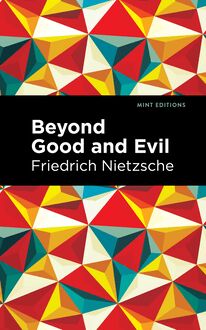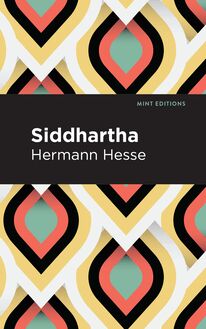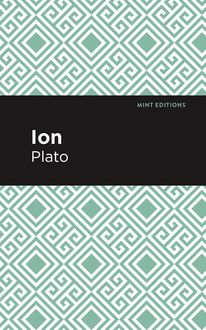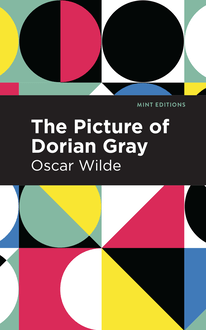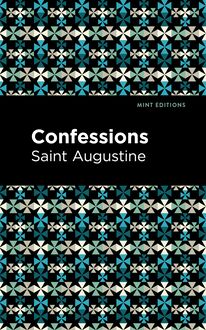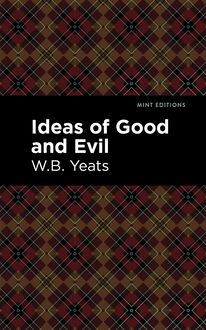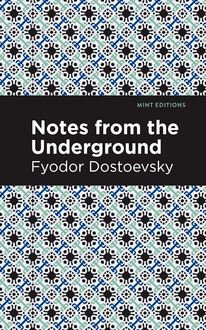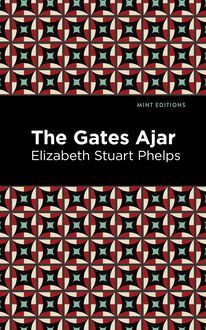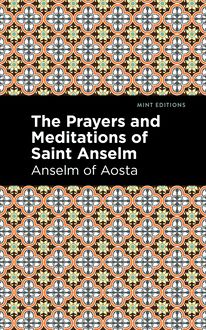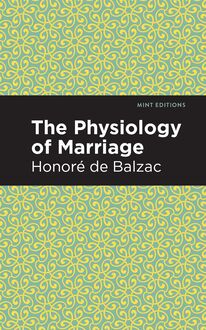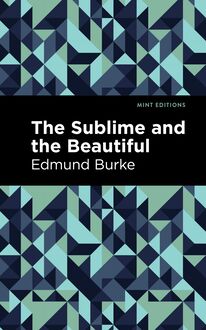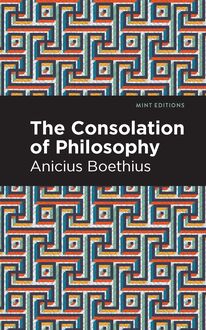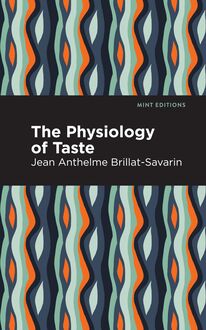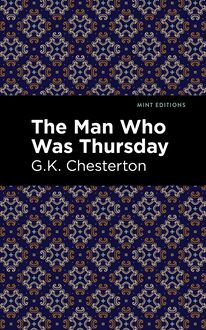-
 Univers
Univers
-
 Ebooks
Ebooks
-
 Livres audio
Livres audio
-
 Presse
Presse
-
 Podcasts
Podcasts
-
 BD
BD
-
 Documents
Documents
-
- Cours
- Révisions
- Ressources pédagogiques
- Sciences de l’éducation
- Manuels scolaires
- Langues
- Travaux de classe
- Annales de BEP
- Etudes supérieures
- Maternelle et primaire
- Fiches de lecture
- Orientation scolaire
- Méthodologie
- Corrigés de devoir
- Annales d’examens et concours
- Annales du bac
- Annales du brevet
- Rapports de stage
La lecture à portée de main
Vous pourrez modifier la taille du texte de cet ouvrage
Découvre YouScribe en t'inscrivant gratuitement
Je m'inscrisDécouvre YouScribe en t'inscrivant gratuitement
Je m'inscrisEn savoir plus
Vous pourrez modifier la taille du texte de cet ouvrage
En savoir plus

Description
A Philosophical Enquiry into the Origin of Our Ideas of the Sublime and Beautiful (1757) is a philosophical treatise published in pamphlet form by Irish statesman and thinker Edmund Burke. Following in the footsteps of generations of philosophers, especially Aristotle and Hume, Burke sought to describe the inherent difference between beauty and sublimity as emotional responses rooted in human perception. His work was incredibly influential for the growth of Romanticism in Europe and Britain especially, which sought to capture the sublime in both visual art, music, and literature.
Burke begins with a section on the senses in relation to human individuality and society in order to illuminate the collective nature of passions—for which we may read emotions—and to argue that the power of the arts is to shape and effect those emotions. In the second part, Burke observes the passions caused by the sublime, including terror, as well as records the effects of certain sensory perceptions—of sound, light, color, and smell—on creating sublime feelings in the mind. Part three follows the same trajectory but describes the beautiful instead before ultimately comparing the two, and part four attempts to ascertain their causes in nature. Burke concludes his treatise with a brief section on the sublime and beautiful in poetry, laying the groundwork for Romanticism’s use of language, among other things, to purposefully invoke feeling in the reader or observer.
With a beautifully designed cover and professionally typeset manuscript, this edition of Edmund Burke’s A Philosophical Enquiry into the Origin of Our Ideas of the Sublime and Beautiful is a classic of philosophy reimagined for modern readers.
Sujets
Informations
| Publié par | Mint Editions |
| Date de parution | 01 décembre 2020 |
| Nombre de lectures | 0 |
| EAN13 | 9781513273778 |
| Langue | English |
Informations légales : prix de location à la page 0,0500€. Cette information est donnée uniquement à titre indicatif conformément à la législation en vigueur.
Extrait
The Sublime and Beautiful
Edmund Burke
This book was originally published as: A Philosophical Inquiry into the Origin of Our Ideas of The Sublime and Beautiful in 1757.
This edition published by Mint Editions 2020.
ISBN 9781513268774 | E-ISBN 9781513273778
Published by Mint Editions ®
minteditionbooks .com
Publishing Director: Jennifer Newens
Design & Production: Rachel Lopez Metzger
Typesetting: Westchester Publishing Services
C ONTENTS
P ART 1 1. N OVELTY 2. P AIN AND P LEASURE 3. T HE D IFFERENCE B ETWEEN THE R EMOVAL OF P AIN AND P OSITIVE P LEASURE 4. O F D ELIGHT AND P LEASURE , AS O PPOSED TO E ACH O THER 5. J OY AND G RIEF 6. O F THE P ASSIONS W HICH B ELONG TO S ELF -P RESERVATION 7. O F THE S UBLIME 8. O F THE P ASSIONS W HICH B ELONG TO S OCIETY 9. T HE F INAL C AUSE OF THE D IFFERENCE B ETWEEN THE P ASSIONS B ELONGING TO S ELF -P RESERVATION AND T HOSE W HICH R EGARD THE S OCIETY OF THE S EXES 10. O F B EAUTY 11. S OCIETY AND S OLITUDE 12. S YMPATHY , I MITATION , AND A MBITION 13. S YMPATHY 14. T HE E FFECTS OF S YMPATHY IN THE D ISTRESSES OF O THERS 15. O F THE E FFECTS OF T RAGEDY 16. I MITATION 17. A MBITION 18. T HE R ECAPITULATION 19. T HE C ONCLUSION P ART 2 1. O F THE P ASSION C AUSED BY THE S UBLIME 2. T ERROR 3. O BSCURITY 4. O F THE D IFFERENCE B ETWEEN C LEARNESS AND O BSCURITY WITH R EGARD TO THE P ASSIONS 5. P OWER 6. P RIVATION 7. V ASTNESS 8. I NFINITY 9. S UCCESSION AND U NIFORMITY 10. M AGNITUDE IN B UILDING 11. I NFINITY IN P LEASING O BJECTS 12. D IFFICULTY 13. M AGNIFICENCE 14. L IGHT 15. L IGHT IN B UILDING 16. C OLOR C ONSIDERED AS P RODUCTIVE OF THE S UBLIME 17. S OUND AND L OUDNESS 18. S UDDENNESS 19. I NTERMITTING 20. T HE C RIES OF A NIMALS 21. S MELL AND T ASTE —B ITTERS AND S TENCHES 22. F EELING —P AIN P ART 3 1. O F B EAUTY 2. P ROPORTION N OT THE C AUSE OF B EAUTY IN V EGETABLES 3. P ROPORTION N OT THE C AUSE OF B EAUTY IN A NIMALS 4. P ROPORTION N OT THE C AUSE OF B EAUTY IN THE H UMAN S PECIES 5. P ROPORTION F URTHER C ONSIDERED 6. F ITNESS N OT THE C AUSE OF B EAUTY 7. T HE R EAL E FFECTS OF F ITNESS 8. T HE R ECAPITULATION 9. P ERFECTION N OT THE C AUSE OF B EAUTY 10. H OW F AR THE I DEA OF B EAUTY M AY B E A PPLIED TO THE Q UALITIES OF THE M IND 11. H OW F AR THE I DEA OF B EAUTY M AY B E A PPLIED TO V IRTUE 12. T HE R EAL C AUSE OF B EAUTY 13. B EAUTIFUL O BJECTS S MALL 14. S MOOTHNESS 15. G RADUAL V ARIATION 16. D ELICACY 17. B EAUTY IN C OLOR 18. R ECAPITULATION 19. T HE P HYSIOGNOMY 20. T HE E YE 21. U GLINESS 22. G RACE 23. E LEGANCE AND S PECIOUSNESS 24. T HE B EAUTIFUL IN F EELING 25. T HE B EAUTIFUL IN S OUNDS 26. T ASTE AND S MELL 27. T HE S UBLIME AND B EAUTIFUL C OMPARED P ART 4 1. O F THE E FFICIENT C AUSE OF THE S UBLIME AND B EAUTIFUL 2. A SSOCIATION 3. C AUSE OF P AIN AND F EAR 4. C ONTINUED 5. H OW THE S UBLIME IS P RODUCED 6. H OW P AIN C AN B E A C AUSE OF D ELIGHT 7. E XERCISE N ECESSARY FOR THE F INER O RGANS 8. W HY T HINGS N OT D ANGEROUS S OMETIMES P RODUCE A P ASSION L IKE T ERROR 9. W HY V ISUAL O BJECTS OF G REAT D IMENSIONS ARE S UBLIME 10. U NITY W HY R EQUISITE TO V ASTNESS 11. T HE A RTIFICIAL I NFINITE 12. T HE V IBRATIONS M UST B E S IMILAR 13. T HE E FFECTS OF S UCCESSION IN V ISUAL O BJECTS E XPLAINED 14. L OCKE ’ S O PINION C ONCERNING D ARKNESS C ONSIDERED 15. D ARKNESS T ERRIBLE IN I TS O WN N ATURE 16. W HY D ARKNESS IS T ERRIBLE 17. T HE E FFECTS OF B LACKNESS 18. T HE E FFECTS OF B LACKNESS M ODERATED 19. T HE P HYSICAL C AUSE OF L OVE 20. W HY S MOOTHNESS IS B EAUTIFUL 21. S WEETNESS , I TS N ATURE 22. S WEETNESS R ELAXING 23. V ARIATION , W HY B EAUTIFUL 24. C ONCERNING S MALLNESS 25. O F C OLOR P ART 5 1. O F W ORDS 2. T HE C OMMON E FFECTS OF P OETRY , N OT B Y R AISING I DEAS OF T HINGS 3. G ENERAL W ORDS B EFORE I DEAS 4. T HE E FFECT OF W ORDS 5. E XAMPLES T HAT W ORDS M AY A FFECT W ITHOUT R AISING I MAGES 6. P OETRY N OT S TRICTLY AN I MITATIVE A RT 7. H OW W ORDS I NFLUENCE THE P ASSIONS
PART 1
Section 1
N OVELTY
The first and the simplest emotion which we discover in the human mind is curiosity. By curiosity I mean whatever desire we have for, or whatever pleasure we take in, novelty. We see children perpetually running from place to place, to hunt out something new: they catch with great eagerness, and with very little choice, at whatever comes before them; their attention is engaged by everything, because everything has, in that stage of life, the charm of novelty to recommend it. But as those things, which engage us merely by their novelty, cannot attach us for any length of time, curiosity is the most superficial of all the affections; it changes its object perpetually; it has an appetite which is very sharp, but very easily satisfied; and it has always an appearance of giddiness, restlessness, and anxiety. Curiosity, from its nature, is a very active principle; it quickly runs over the greatest part of its objects, and soon exhausts the variety which is commonly to be met with in nature; the same things make frequent returns, and they return with less and less of any agreeable effect. In short, the occurrences of life, by the time we come to know it a little, would be incapable of affecting the mind with any other sensations than those of loathing and weariness, if many things were not adapted to affect the mind by means of other powers besides novelty in them, and of other passions besides curiosity in ourselves. These powers and passions shall be considered in their place. But, whatever these powers are, or upon what principle soever they affect the mind, it is absolutely necessary that they should not be exerted in those things which a daily and vulgar use have brought into a stale unaffecting familiarity. Some degree of novelty must be one of the materials in every instrument which works upon the mind; and curiosity blends itself more or less with all our passions.
Section 2
P AIN AND P LEASURE
It seems, then, necessary towards moving the passions of people advanced in life to any considerable degree, that the objects designed for that purpose, besides their being in some measure new, should be capable of exciting pain or pleasure from other causes. Pain and pleasure are simple ideas, incapable of definition. People are not liable to be mistaken in their feelings, but they are very frequently wrong in the names they give them, and in their reasonings about them. Many are of opinion, that pain arises necessarily from the removal of some pleasure; as they think pleasure does from the ceasing or diminution of some pain. For my part, I am rather inclined to imagine, that pain and pleasure, in their most simple and natural manner of affecting, are each of a positive nature, and by no means necessarily dependent on each other for their existence. The human mind is often, and I think it is for the most part, in a state neither of pain nor pleasure, which I call a state of indifference. When I am carried from this state into a state of actual pleasure, it does not appear necessary that I should pass through the medium of any sort of pain. If in such a state of indifference, or ease, or tranquillity, or call it what you please, you were to be suddenly entertained with a concert of music; or suppose some object of a fine shape, and bright, lively colors, to be presented before you; or imagine your smell is gratified with the fragrance of a rose; or if, without any previous thirst, you were to drink of some pleasant kind of wine, or to taste of some sweetmeat without being hungry; in all the several senses, of hearing, smelling, and tasting, you undoubtedly find a pleasure; yet, if I inquire into the state of your mind previous to these gratifications, you will hardly tell me that they found you in any kind of pain; or, having satisfied these several senses with their several pleasures, will you say that any pain has succeeded, though the pleasure is absolutely over? Suppose, on the other hand, a man in the same state of indifference to receive a violent blow, or to drink of some bitter potion, or to have his ears wounded with some harsh and grating sound; here is no removal of pleasure; and yet here is felt, his every sense which is affected, a pain very distinguishable. It may be said, perhaps, that the pain in these cases had its rise from the removal of the pleasure which the man enjoyed before, though that pleasure was of so low a degree as to be perceived only by the removal. But this seems to me a subtilty that is not discoverable in nature. For if, previous to the pain, I do not feel any actual pleasure, I have no reason to judge that any such thing exists; since pleasure is only pleasure as it is felt. The same may be said of pain, and with equal reason. I can never persuade myself that pleasure and pain are mere relations, which can only exist as they are contrasted; but I think I can discern clearly that there are positive pains and pleasures, which do not at all depend upon each other. Nothing is more certain to my own feelings than this. There is nothing which I can distinguish in my mind with more clearness than the three states, of indifference, of pleasure, and of pain. Every one of these I can perceive without any sort of idea of its relation to anything else. Caius is afflicted with a fit of the colic; this man is actually in pain; stretch Caius upon the rack, he will feel a much greater pain: but does this pain of the rack arise from the removal of any pleasure? or is the fit of the colic a pleasure or a pain just as we are pleased to consider it?
Section 3
T HE D IFFERENCE B ETWEEN THE R EMOVAL OF P AIN AND P OSITIVE P LEASURE
We shall carry this proposition yet a step further. We shall venture to propose, that pain and pleasure are not only not necessarily dependent for their existence on their mutual diminution or removal, but that, in reality, the diminutio
-
 Univers
Univers
-
 Ebooks
Ebooks
-
 Livres audio
Livres audio
-
 Presse
Presse
-
 Podcasts
Podcasts
-
 BD
BD
-
 Documents
Documents
-
Jeunesse
-
Littérature
-
Ressources professionnelles
-
Santé et bien-être
-
Savoirs
-
Education
-
Loisirs et hobbies
-
Art, musique et cinéma
-
Actualité et débat de société
-
Jeunesse
-
Littérature
-
Ressources professionnelles
-
Santé et bien-être
-
Savoirs
-
Education
-
Loisirs et hobbies
-
Art, musique et cinéma
-
Actualité et débat de société
-
Actualités
-
Lifestyle
-
Presse jeunesse
-
Presse professionnelle
-
Pratique
-
Presse sportive
-
Presse internationale
-
Culture & Médias
-
Action et Aventures
-
Science-fiction et Fantasy
-
Société
-
Jeunesse
-
Littérature
-
Ressources professionnelles
-
Santé et bien-être
-
Savoirs
-
Education
-
Loisirs et hobbies
-
Art, musique et cinéma
-
Actualité et débat de société
- Cours
- Révisions
- Ressources pédagogiques
- Sciences de l’éducation
- Manuels scolaires
- Langues
- Travaux de classe
- Annales de BEP
- Etudes supérieures
- Maternelle et primaire
- Fiches de lecture
- Orientation scolaire
- Méthodologie
- Corrigés de devoir
- Annales d’examens et concours
- Annales du bac
- Annales du brevet
- Rapports de stage
